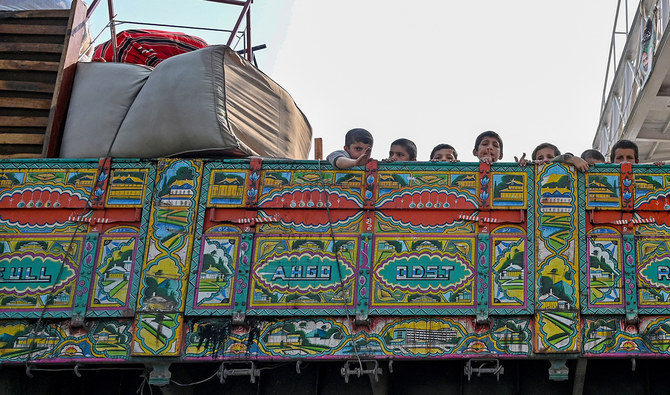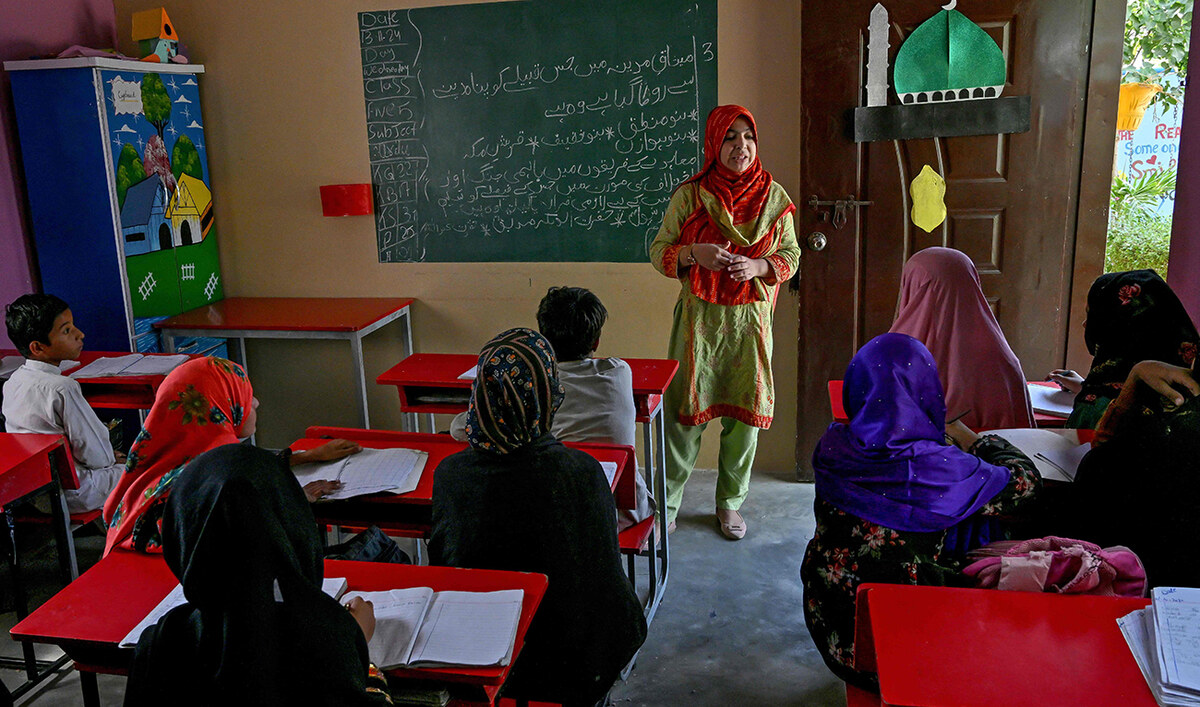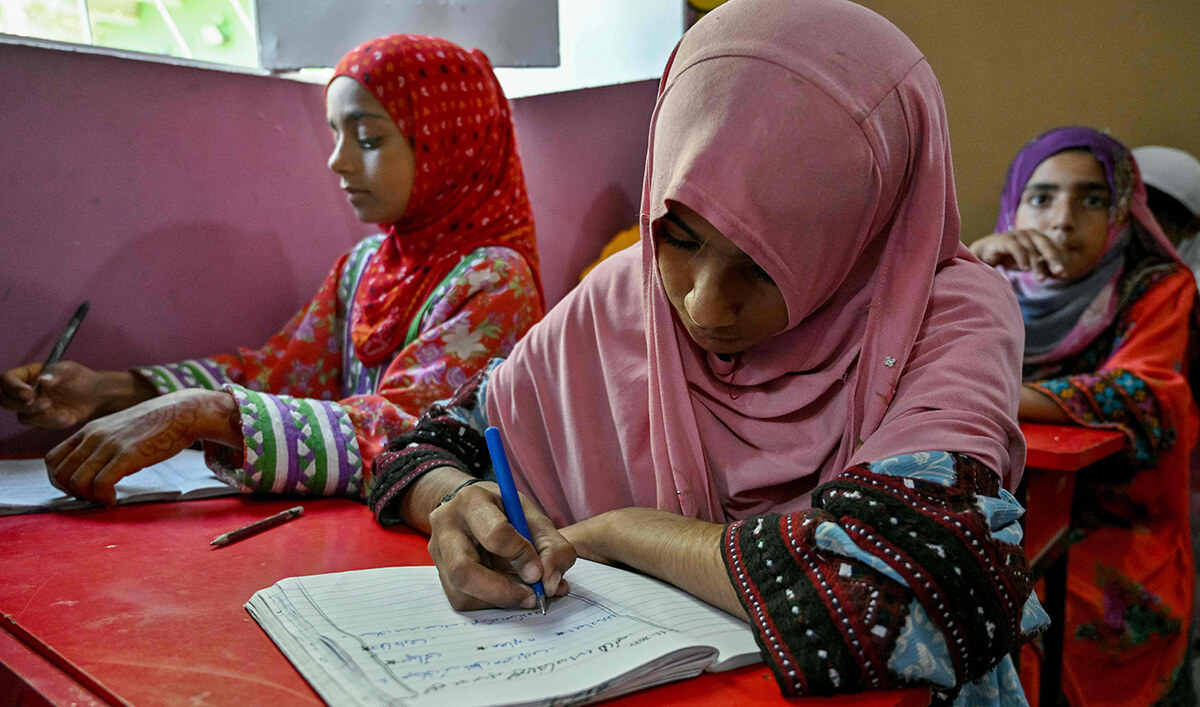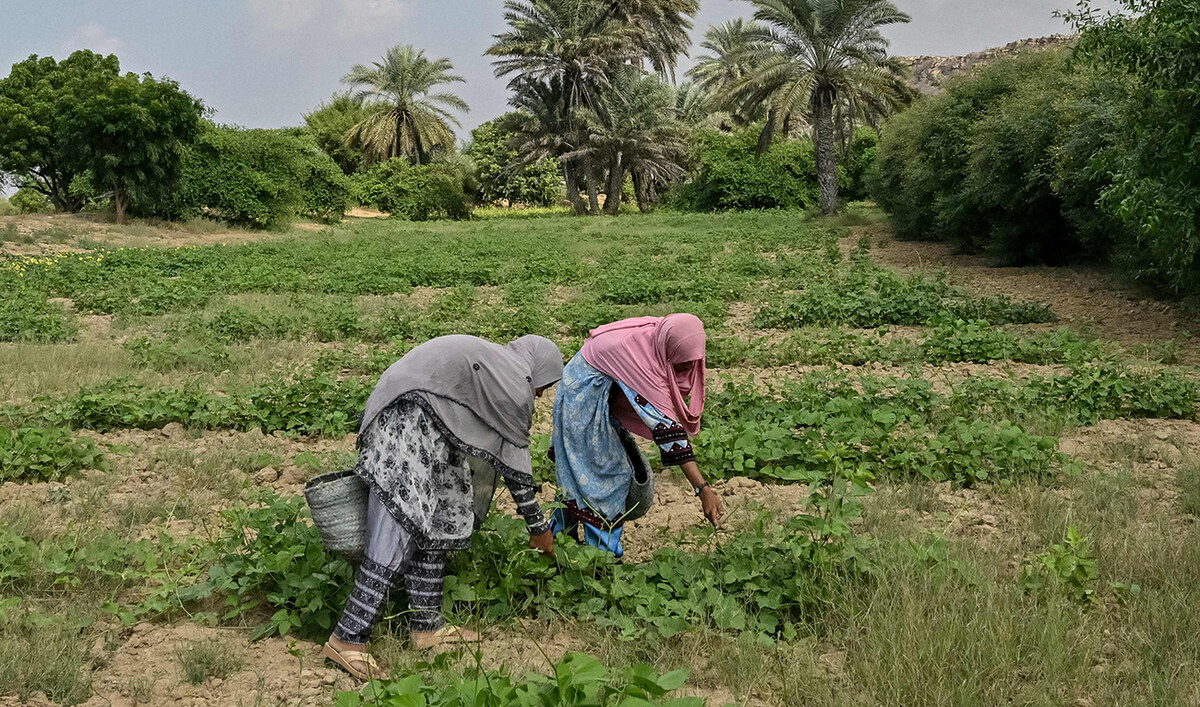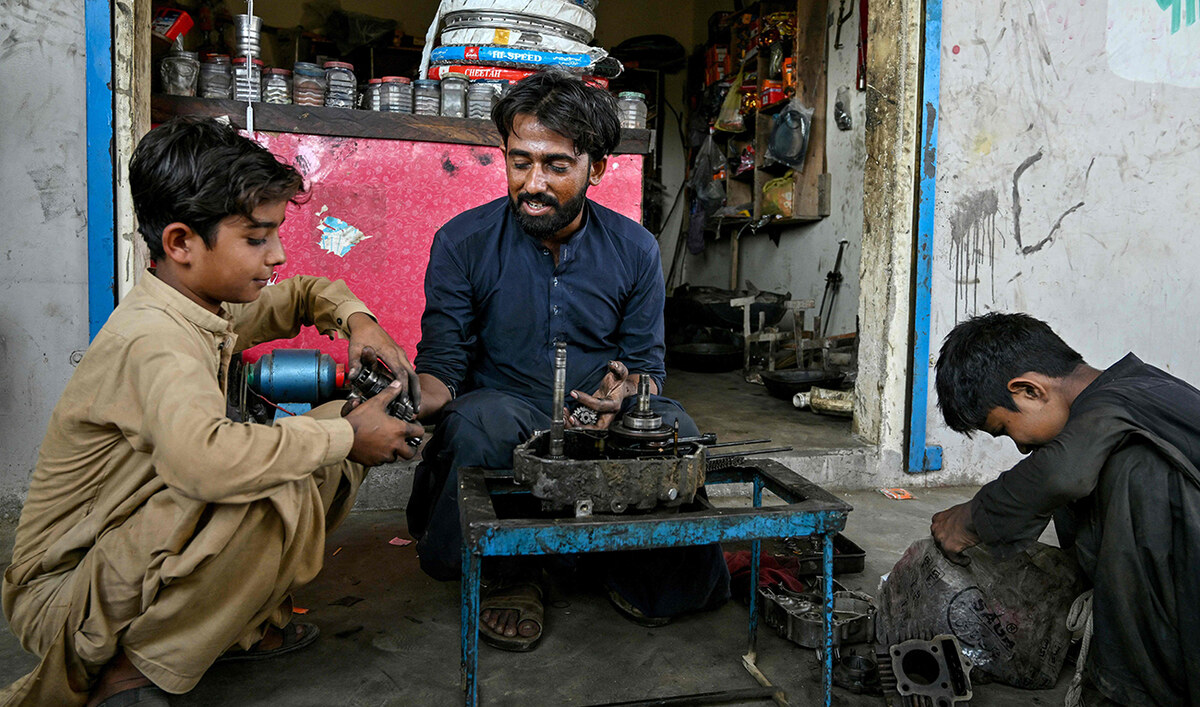ISLAMABAD: Pakistan’s deadline for undocumented migrants to voluntarily leave the country expired today, Wednesday, and the government said it would start rounding up from tomorrow, Thursday, those staying illegally and send them to 49 holding centers around the country.
Pakistan last month gave foreigners without documents or registration until Nov. 1 to leave or face deportation and arrest. The government has set up deportation centers for undocumented migrants, including an estimated 1.7 million Afghans, and anyone found staying in the country without authorization from today, Wednesday, will be arrested and sent to one of the centers, the interior ministry has said.
“The Ministry of Interior has set up 49 holding area points across the country to help these people respectfully cross the border after thorough screening,” state-run Radio Pakistan reported.
“36 holding centers have been established in all 36 districts of Punjab, three in Peshawar, Haripur and Landi Kotal districts of Khyber Pakhtunkhwa, two in Kemari and Malir districts of Sindh and three in Quetta, Chagai and Pishin districts of Balochistan. Similarly, one holding center each has been established in Islamabad Federal Capital and Gilgit.”
Undocumented Afghans can cross over from the Chaman, Noor Wahab, Badini and Barab Chah crossing points in Balochistan and Torkham, Kharlachi, Ghulam Khan and Angoor Adda points in Khyber Pakhtunkhwa.
“From November 2 onwards, they [undocumented foreigners] will be sent to our holding centers. We will keep them at the holding centers for two to three days,” Interior Minister Sarfaraz Bugti said in a video message hours before the expiry of the Nov 1. deadline.
“We will try to provide them with food and health facilities and after that we will deport them through the border of our choice which will be in keeping with our security [requirements] and convenience.”
More than 130,000 Afghans have returned home since the crackdown was announced on Oct. 3, according to officials.
Although the government insists its expulsion order does not specifically target Afghans, they form the largest number of undocumented foreigners in the South Asian nation. Around 1.7 million Afghans in Pakistan, out of a total four million, are undocumented, according to the government. Many of them have lived in Pakistan their entire lives and never visited Afghanistan.
The sudden expulsion threat came after suicide bombings this year that the government said involved Afghans, though without providing evidence. Islamabad has also blamed Afghans for smuggling and other militant attacks as well as petty crimes and says Afghan nationals were found to be involved in attacks against government and the army, including 14 of this year’s 24 suicide bombings.
"NO PERPETUAL BAN"
The country hosts millions of Afghans who fled their country during the 1979-1989 Soviet occupation. The numbers swelled after the Taliban seized power in Afghanistan in August 2021.
The government says those with Proof of Registration (PoR) and Afghan Citizenship Cards (ACC) will not be expelled by Nov. 1.
On Tuesday, Caretaker Prime Minister Anwaar-ul-Haq Kakar announced there was no “perpetual ban” on the return of Afghan nationals to Pakistan.
“We have not placed a perpetual ban on them that they cannot come back to Pakistan after today,” Kakar told journalists.
“They should go to their countries, get their travel documents issued from their states, get visas from our mission there. Whether they want to come for educational purposes, for business, whatever their purpose may be, we will facilitate that.”
The government was only against “irregulated” travelers, Kakar added.
Western embassies and the United Nations have urged Pakistan to identify and protect Afghans at risk of persecution at home.
“Amnesty International strongly reiterates its call to the Government of Pakistan to immediately reverse its decision to forcibly deport unregistered Afghan refugees ahead of the deadline set for tomorrow,” the group said in a statement.
It added that Pakistan must meet its international legal obligations including the principle of non-refoulement and stop the crackdown against, and harassment of, Afghan refugees across the country.
“Amnesty International is also calling on the international community to financially support Pakistan for hosting Afghan refugees, and to share the responsibility to provide protection to those fleeing persecution in Afghanistan,” the statement added.
Amnesty International said lives and rights are at stake due to “the collective failure of the Pakistan Government and the international community to share the responsibility for their protection,” stressing the risks for women, journalists, human rights defenders, protesters, artists, and former government officials and security personnel.


